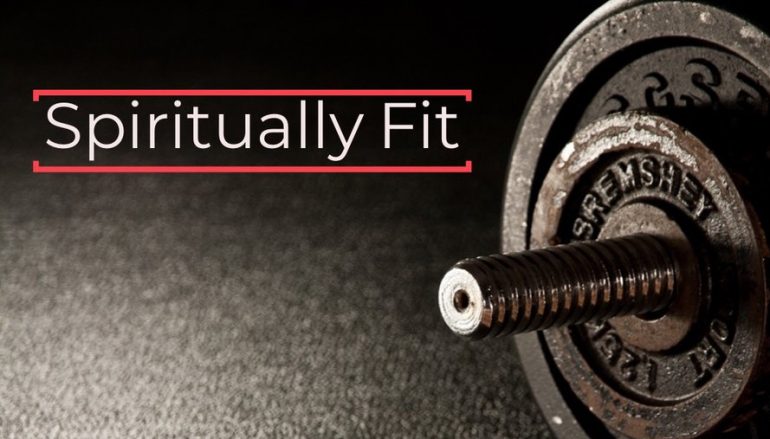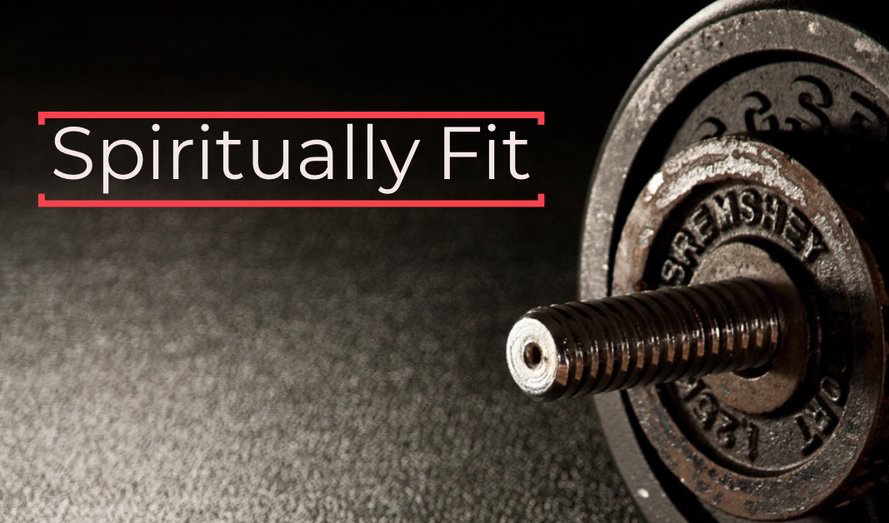

Lent – Our Spiritual Gymnasium for Strengthening Our Mortification Muscle
As we began Lent this year on Ash Wednesday, the Opening Prayer (Collect) was heavy in its use of military language, calling us to battle:
Grant, O Lord, that we may begin with holy fasting this campaign of Christian service, so that, as we take up battle against spiritual evils, we may be armed with weapons of self-restraint. Through our Lord Jesus Christ, your Son, who lives and reigns with you in the unity of the Holy Spirit, God, for ever and ever.
Like every soldier, preparation for battle begins by reaching new heights of strength, otherwise we risk being destroyed by our enemies. President Ronald Reagan put it this way, “We maintain the peace through our strength; weakness only invites aggression.”
Spiritual progress entails the ascesis and mortification that gradually lead to living in the peace and joy of the Beatitudes: ‘He who climbs never stops going from beginning to beginning, through beginnings that have no end. He never stops desiring what he already knows.’”
According to the Catechism of the Catholic Church, “The way of perfection passes by way of the Cross. There is no holiness without renunciation and spiritual battle. Jesus told his disciples, “If anyone would come after me, let him deny himself and take up his cross and follow me” (Mathew 16:24).
The purpose of mortification is to train “the soul to virtuous and holy living.” It achieves this through conforming one’s passions to reason and faith. According to the Catholic Encyclopedia, internal mortification, such as the struggle against pride and self-love, is essential, but external mortification, such as fasting can also be good if they conform with a spirit of internal mortification.
Literally, we are being called into a spiritual training that builds up our “mortification muscle.” What is meant by the “mortification muscle”? It is a “strength of selflessness.” The stronger is our mortification muscle, the easier it becomes to accept the missions God places before us on a daily basis; the easier it is for us to see need and attend to it. Jesus said, “Come to me, all you who are weary and burdened, and I will give you rest. Take my yoke upon you and learn from me, for I am meek and humble in heart, and you will find rest for your souls. For my yoke is easy and my burden is light” (Matthew 11:28-30).
In my sermon (below), I used the example of what I have observed in my 32 years of parish life. The parish will thrive or die, based on the parishioners’ willingness to “pitch in” with the many activities within that parish family. I have noticed that young couples with their first child are overwhelmed with caring for the needs of that child, and are pretty much unable to attend to hardly any missions beyond that one (I have dubbed this, “First Child Syndrome”). Conversely, the most active parents in parishes tend to be the ones with many children.
What’s at work here? Young couples, with their first child, have not yet developed their “mortification muscle.” Having come, recently, from a “single life,” there were few demands for them to care for anyone but themselves. Now, they are facing a “new demand” of caring for a spouse and a child. In this sense, they are just beginning their training in building up their “mortification muscle.” So, taking on anything beyond this “new demand” is beyond their capacity of “self gift.” Whereas the person who has had years of “self gift” given to a spouse and many children, their “mortification muscle” has become herculean. Thus, they find it “easy” to take on many more missions.
Jesus’ yoke is easy and and His burden light for those who have developed their “mortification muscle.” Their “strength of selflessness” comes from their strength of meekness (easily led by God) and strength of humility (denying oneself in favor of love and care for others). Rather than finding themselves weary and burdened by the demands of “new missions” (like newlyweds with their first child), they welcome each of these new missions with great joy and fervent resolve to give their best to this “next thing on their plate.”
Acts of mortification are very much like “resistance training” with weights in a gym. At first, the athlete begins with a low weight, and finds it very hard to lift. As they continue to train, they can take on more weight, and it becomes easier to lift. So it is with “acts of mortification.” We are “resisting” our desire to care for little if anything beyond ourselves. Each new mission is difficult. However, the more we resist our selfish inclination, the stronger we become in our ability to accept every selfless mission God puts in our path.
See this Lent, especially, as the “spiritual gymnasium” for developing your “mortification muscle.” Let’s become “Spiritually Fit!”
I speak about this in this morning’s sermon:







